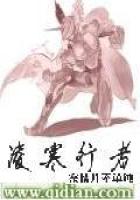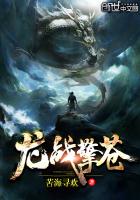On the twenty-first of the month, all the needed preparations having been finished, the arduous work of ****** the portage, or carry, was begun. All the members of the expedition were now together, and the two captains divided with their men the labor of hunting, carrying luggage, boat-building, exploring, and so on.
They made three camps, the lower one on Portage Creek, the next at Willow Run [see map], and a third at a point opposite White Bear Islands. The portage was not completed until July second.
They were often delayed by the breaking down of their rude carriages, and during the last stage of their journey much of their luggage was carried on the backs of the men.
They were also very much annoyed with the spines of the prickly pear, a species of cactus, which, growing low on the ground, is certain to be trampled upon by the wayfarer. The spines ran through the moccasins of the men and sorely wounded their feet.
Thus, under date of June twenty-fourth, the journal says (It should be understood that the portage was worked from above and below the rapids):--"On going down yesterday Captain Clark cut off several angles of the former route, so as to shorten the portage considerably, and marked it with stakes. He arrived there in time to have two of the canoes carried up in the high plain, about a mile in advance.
Here they all repaired their moccasins, and put on double soles to protect them from the prickly pear, and from the sharp points of earth which have been formed by the trampling of the buffalo during the late rains.
This of itself is sufficient to render the portage disagreeable to one who has no burden; but as the men are loaded as heavily as their strength will permit, the crossing is really painful.
Some are limping with the soreness of their feet; others are scarcely able to stand for more than a few minutes, from the heat and fatigue.
They are all obliged to halt and rest frequently; at almost every stopping-place they fall, and many of them are asleep in an instant; yet no one complains, and they go on with great cheerfulness.
At the camp, midway in the portage, Drewyer and Fields joined them; for, while Captain Lewis was looking for them at Medicine River, they returned to report the absence of Shannon, about whom they had been very uneasy. They had killed several buffalo at the bend of the Missouri above the falls, dried about eight hundred pounds of meat, and got one hundred pounds of tallow; they had also killed some deer, but had seen no elk."
Under this date, too, Captain Lewis, who was with another branch of the expedition, makes this note: "Such as were able to shake a foot amused themselves in dancing on the green to the music of the violin which Cruzatte plays extremely well."
The journal continues:--"We were now occupied [at White Bear camp] in fitting up a boat of skins, the frame of which had been prepared for the purpose at Harper's Ferry in Virginia. It was made of iron, thirty-six feet long, four and one-half feet in the beam, and twenty-six inches wide in the bottom.
Two men had been sent this morning for timber to complete it, but they could find scarcely any even tolerably straight sticks four and one-half feet long; and as the cottonwood is too soft and brittle, we were obliged to use willow and box-elder."
On the twenty-seventh, the main party, which was working on the upper part of the portage, joined that of Captain Clark at the lower camp, where a second cache, or place of deposit, had been formed, and where the boat-swivel was now hidden under the rocks.
The journal says:--"The party were employed in preparing timber for the boat, except two who were sent to hunt. About one in the afternoon a cloud arose from the southwest, and brought with it violent thunder, lightning, and hail.
Soon after it passed, the hunters came in, from about four miles above us.
They had killed nine elk and three bears. As they were hunting on the river they saw a low ground covered with thick brushwood, where from the tracks along shore they thought a bear had probably taken refuge.
They therefore landed, without ****** a noise, and climbed a tree about twenty feet above the ground. Having fixed themselves securely, they raised a loud shout, and a bear instantly rushed toward them.
These animals never climb, and therefore when he came to the tree and stopped to look at them, Drewyer shot him in the head. He proved to be the largest we had yet seen; his nose appeared to be like that of a common ox; his fore feet measured nine inches across; the hind feet were seven inches wide and eleven and three quarters long, exclusive of the talons.
One of these animals came within thirty yards of the camp last night, and carried off some buffalo-meat which we had placed on a pole."
The party were very much annoyed here by the grizzlies which infested their camp at night. Their faithful dog always gave warning of the approach of one of these monsters; but the men were obliged to sleep with their guns by their side, ready to repel the enemy at a moment's notice.
Captain Clark finally broke up the camp on Portage Creek, June 28, having deposited in his cache whatever could be left behind without inconvenience.
"On the following day," the journal says:--"Finding it impossible to reach the upper end of the portage with the present load, in consequence of the state of the road after the rain, he sent back nearly all his party to bring on the articles which had been left yesterday. Having lost some notes and remarks which he had made on first ascending the river, he determined to go up to the Whitebear Islands along its banks, in order to supply the deficiency.
He there left one man to guard the baggage, and went on to the falls, accompanied by his servant York, Chaboneau, and his wife with her young child.















